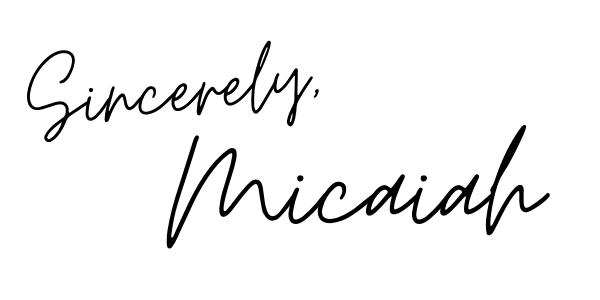This is the third and last post in a series about American editor Maxwell Perkins and his legacy.
If you’ve read my last two posts about Maxwell Perkins, you likely know by now that Perkins was a literary legend that helped shape American literature. (And if you haven’t seen those posts, click here to read the first of the series!) But if you’re an editor like me, you might be wondering what we can learn from Perkins. What does he have to teach modern-day editors? The answer is a LOT.
In this post, I will share three things that we editors can learn from Maxwell Perkins. Be sure to share more in the comments if you think of them!
1. Allow authors to retain ownership of their work.

Maxwell Perkins lived with an editorial philosophy of not “dabbling” too much in an author’s work. He wanted authors to maintain ownership of their works. Perkins saw himself as an adviser, not an active participant in the writing process. According to Susan Bell, Perkins “epitomized the modern ideal of collaboration, where an editor would engage energetically, but never invasively, in a writer’s work” (195–196). John Wheelock, one of Perkins’s associates at Scribners, said this of Perkins’s editorial philosophy:
“The ideas or theories of an editor should not be obtruded, a writer must not substitute them for his own solution. Over and over, in these pages [of Perkins’s letters], that warning is implied or stated, as in an early letter to Scott Fitzgerald, with its striking first sentence, ‘Do not ever defer to my judgment’ (a thing Fitzgerald had threatened to do).”
Indeed, this immense respect for authors’ works and ownership of those works is evident in Perkins’s communication with his authors. By cultivating that same respect and working to be listeners rather than taking over the writing process ourselves, we editors can be helpful collaborators rather than domineering grammar Nazis. Helping authors tell their stories well is at the heart of editing, not that of telling our stories–something Perkins understood and lived out.
2. Cultivate skills in many forms of editing.

Cultivating a wide range of editing skills isn’t really required to be a good editor. After all, editors at large publishing companies often need to specialize, with some working in acquisitions and others in copyediting. But a breadth of editorial skill it is something that we can all learn from and potentially aspire to.
Maxwell Perkins was an editor that did not specialize in one category of editing. According to Matthew Bruccoli, “Unlike current ‘acquisitions editors’ who deal with agents and do not edit, Perkins recruited authors, advised them on work-in-progress, and read their manuscripts” (xxii). Thus, Perkins was an acquisitions editor and a developmental editor. He also did copyediting but was ironically a poor copyeditor!
By widening our editorial skillsets, we editors can keep open minds about authors’ works. This doesn’t mean that it’s bad to be an acquisitions editor or a copyeditor! However, it can be beneficial to learn more about other forms of editing and to try one’s hand at them to further grow professionally.
3. Be kind and show genuine interest in authors’ works.

Editors are sometimes notoriously thought of as strict, grumpy, and overly-obsessed with grammar. Some writers have the perception that editors might spoil all the fun and dislike or attempt to fix their work. But for a good editor, that is most certainly not the case! Maxwell Perkins teaches us that good editors are kind to the writers they work with and show genuine interest in their writing.
In a letter to Margaret Roberts, Thomas Wolfe described learning that Perkins had written a summary of his book prior to their first meeting together in addition to preparing extensive feedback. In response to Perkins’s care in reading and summarizing the huge work, Wolfe said that “I was so moved and touched to think that someone at length had thought enough of my work to sweat over it in this way that I almost wept” (qtd. in Bruccoli xix). This gesture showed Wolfe that Perkins was invested in him and his art, which made a huge difference in their relationship.
Throughout the interaction Wolfe described in their first meeting together, we can also see that Perkins gave Wolfe many encouraging words and compliments. “…he said it was a masterpiece, and that he had been reading it to Hemingway,” wrote Wolfe (Bruccoli xix).
While we might not be able to pass off stories to Ernest Hemingway, by encouraging the authors we work with, we editors can motivate them to do good work and help them see the meaning and value of their work. I have made it an editorial goal of mine to say at least one nice thing about any piece of writing any writer brings me. As a writer myself, I know the power that a kind word or two can do!
In Conclusion

Maxwell Perkins has a lot to teach us editors. There’s so much here that I didn’t include for the sake of space, but perhaps future blog posts will contain some of his wisdom! I’m grateful to have gotten to share his story, impact, and wisdom with you all. Perkins’s example inspires me to be a better editor, and I hope that his story inspires and encourages you in your editorial journey too.
If you’d like to learn more about Perkins, I suggest checking out some of the sources I used for these posts or watching the movie Genius, which is free on Amazon right now. Thank you for following along with this series!

Sources
“Maxwell Perkins” on Encyclopaedia Britannica
Max Perkins: Editor of Genius by A. Scott Berg
The Sons of Maxwell Perkins edited by Matthew J. Bruccoli
The Artful Edit by Susan Bell
What Editors Do by Peter Ginna (and a special thanks to Mr. Ginna for suggesting the film Genius to me!)

Leave a comment